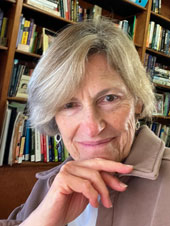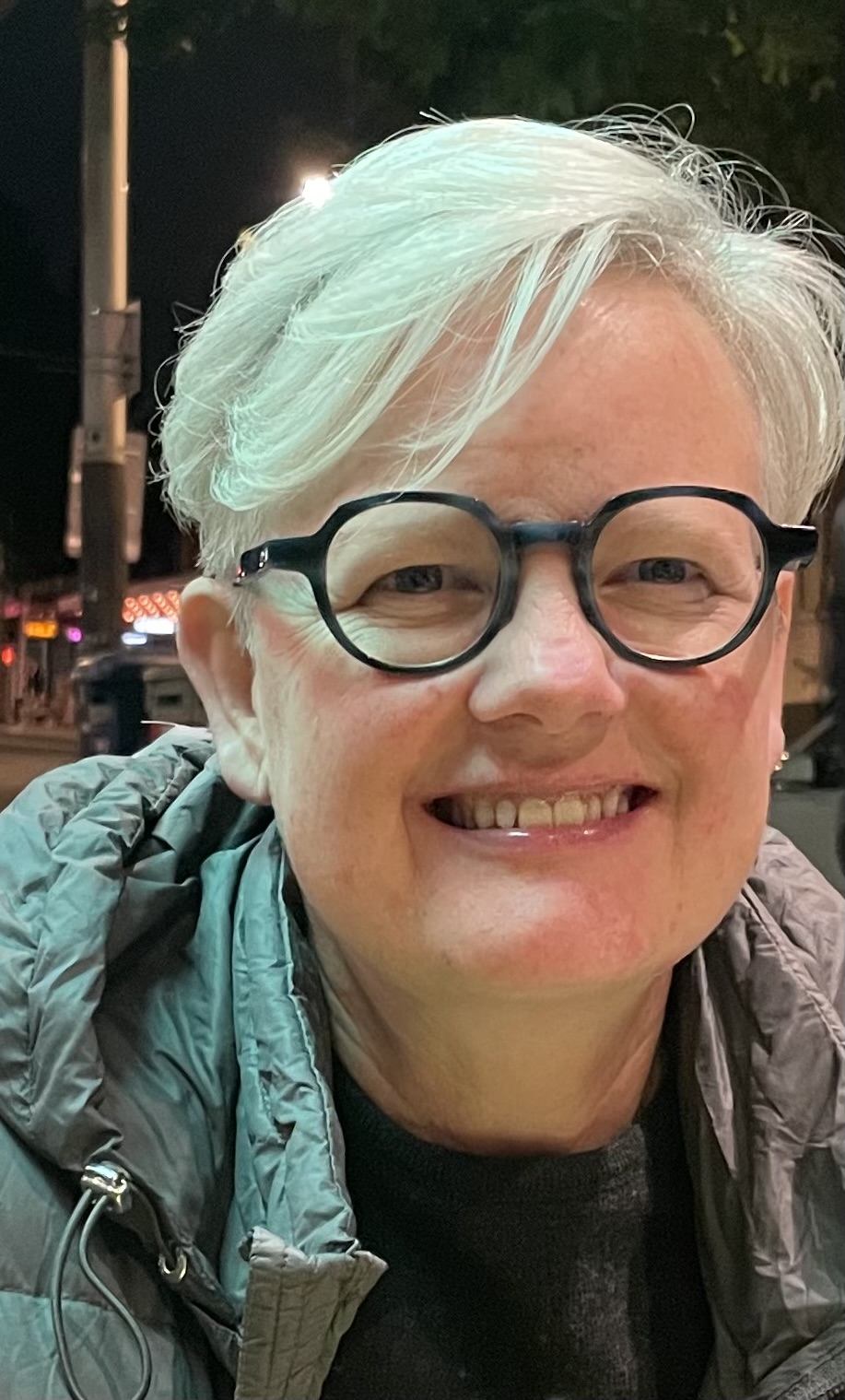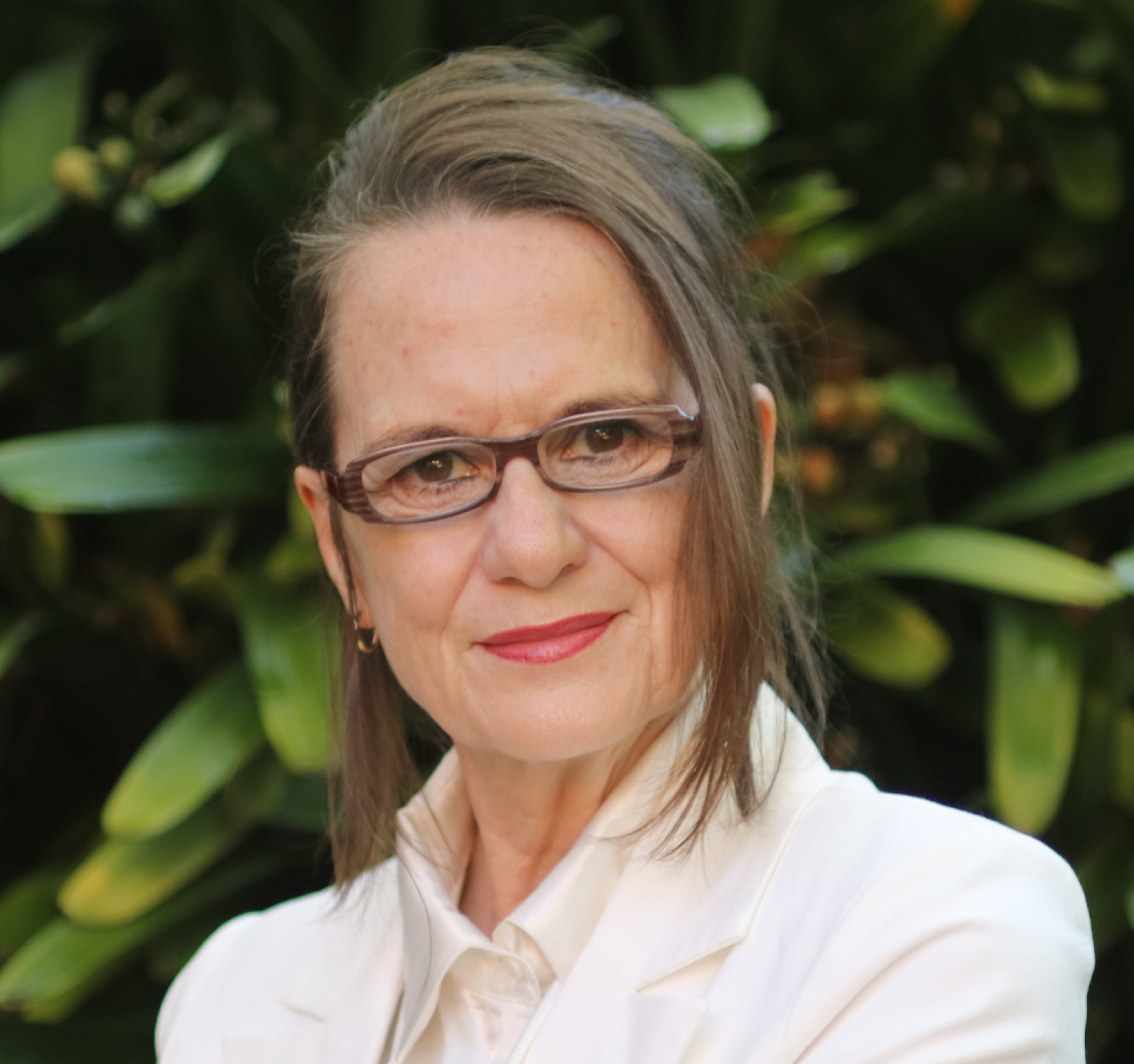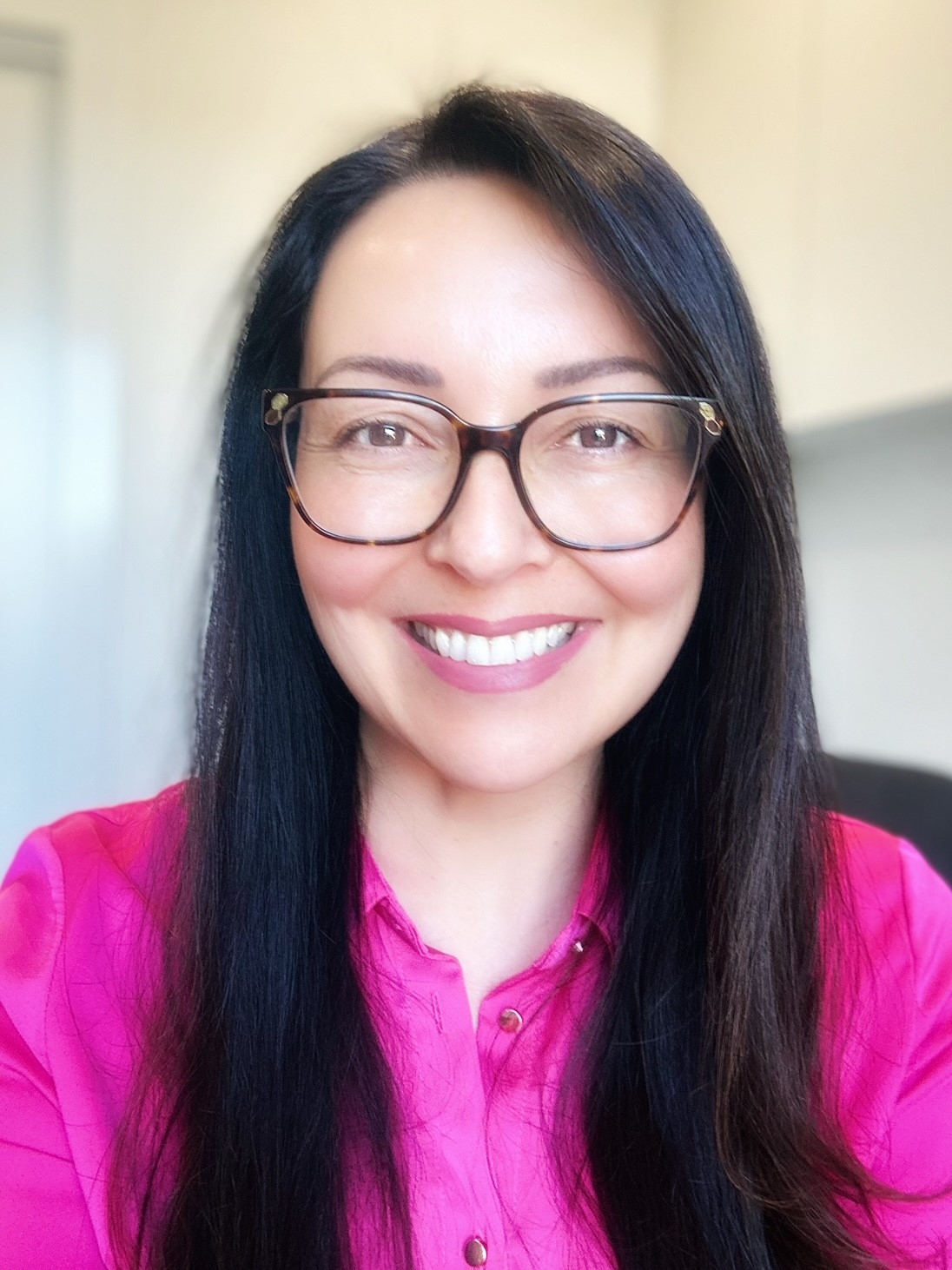The PACFA Research Committee oversees implementation of PACFA’s important role relating to research.
The PACFA Board provides direction on research priorities as detailed in PACFA's Strategic Plan.
PACFA has two major roles in relation to research:
- disseminating information to the profession about the evidence-informed practices relating to counselling and psychotherapy;
- facilitating and commissioning high quality, original research, including literature searches and reviews, into the processes and outcomes of counselling and psychotherapy. Particular focus is given to areas that are important for the profession’s development, particularly where research activity in Australia has been underdeveloped to date; and areas that underpin PACFA’s position in policy and advocacy initiatives.
Research Committee members

Dr Cathy Bettman (Chair) is currently Deputy Dean of Counselling and Psychotherapy at The Cairnmillar Institute. With over 20 years of lecturing and counselling in diverse contexts, Dr Cathy Bettman is a champion of evidence-based mental health practices. She supervises students, interns and practitioners in clinical and research settings.
For her PhD, Cathy conducted a qualitative research study in the area of domestic violence. Her thesis was entitled: Patriarchy: The Predominant Discourse and Font of Domestic Violence. This study resulted in her achieving a reputation as a feminist researcher although she prefers her philosophical stance to be understood as more inclusive. Having been trained in humanistic and systemic frameworks, she brings to the role social constructivist, constructionist and dialogical paradigms. Her qualifications also include MSc (Psychotherapy), Master of Couple and Family Therapy, Master of Counselling, Post Graduate Diploma in Conflict Resolution and BA.
The Research Committee Chair is appointed by the Board on the recommendation of the Committee, and must be a PACFA member or a member of a PACFA Member Association, have a Higher Degree Research Qualification, experience in conducting and publishing research, and a demonstrated understanding of ethical issues in the conduct of research.
As Chair, Dr Bettman is responsible for presenting the views and considerations of the committee to the PACFA Board for discussion, and for carrying out decisions made by the Board.
Deputy Chair:
Vacant
 Dr Elizabeth Day is a senior academic in the Department of Psychotherapy and Counselling at the Auckland University of Technology, where she held the role of Head of Department from 2020 to 2023. She has also worked at tertiary institutions in Australia including the Australian College of Applied Psychology, the University of Melbourne, and Monash University. Her initial degree was in literature and cultural studies, and her PhD was an interdisciplinary exploration of consciousness and intersubjectivity through a close reading of contemporary discourses. She has been a member of PACFA’s Research Committee since 2012, serving as chair from 2012 - 2014. Her focus has been on promoting evidence-informed research in the profession, supporting members to conduct and publish research, and encouraging recognition and use of indigenous and postmodern methodologies. Elizabeth led the development of PACFA’s position statement against ‘conversion therapy’. She is an editorial board member of the Psychotherapy and Counselling Journal of Australia (PACJA), and co-edited the book Psychotherapy and counselling: Reflections on practice (OUP, 2016) to support PACFA’s lobbying efforts. Elizabeth has published in the areas of field theory, mindfulness, gender and sexuality, research methodology (Grounded Theory), telepsychotherapy and professional practice. She relocated to Aotearoa New Zealand in 2015 where she and her wife teach meditation at their studio in Kihikihi, as well as online, and internationally. Elizabeth has an integrative psychotherapy practice, informed by psychodynamic and relational gestalt psychotherapies; weaving into the clinical work her academic experience, meditative cultivation, and experience gained from service to the profession.
Dr Elizabeth Day is a senior academic in the Department of Psychotherapy and Counselling at the Auckland University of Technology, where she held the role of Head of Department from 2020 to 2023. She has also worked at tertiary institutions in Australia including the Australian College of Applied Psychology, the University of Melbourne, and Monash University. Her initial degree was in literature and cultural studies, and her PhD was an interdisciplinary exploration of consciousness and intersubjectivity through a close reading of contemporary discourses. She has been a member of PACFA’s Research Committee since 2012, serving as chair from 2012 - 2014. Her focus has been on promoting evidence-informed research in the profession, supporting members to conduct and publish research, and encouraging recognition and use of indigenous and postmodern methodologies. Elizabeth led the development of PACFA’s position statement against ‘conversion therapy’. She is an editorial board member of the Psychotherapy and Counselling Journal of Australia (PACJA), and co-edited the book Psychotherapy and counselling: Reflections on practice (OUP, 2016) to support PACFA’s lobbying efforts. Elizabeth has published in the areas of field theory, mindfulness, gender and sexuality, research methodology (Grounded Theory), telepsychotherapy and professional practice. She relocated to Aotearoa New Zealand in 2015 where she and her wife teach meditation at their studio in Kihikihi, as well as online, and internationally. Elizabeth has an integrative psychotherapy practice, informed by psychodynamic and relational gestalt psychotherapies; weaving into the clinical work her academic experience, meditative cultivation, and experience gained from service to the profession.
 Adrian Holmes is a counsellor, author and educator based in Brisbane, Australia. Adrian has been working in the human services field for two decades and is currently completing PhD research on mental health and social policy in Australia and overseas. Adrian co-founded and manages the training and supervision organisation Tools For Hard Conversations and released his first book Tools For Hard Conversations in the Helping Professions in 2020. It is now the preferred text book for a number of university courses and has become a valued resource for human services workers who want to work in helpful ways outside of the dominant medical model. To contact Adrian, please email [email protected]
Adrian Holmes is a counsellor, author and educator based in Brisbane, Australia. Adrian has been working in the human services field for two decades and is currently completing PhD research on mental health and social policy in Australia and overseas. Adrian co-founded and manages the training and supervision organisation Tools For Hard Conversations and released his first book Tools For Hard Conversations in the Helping Professions in 2020. It is now the preferred text book for a number of university courses and has become a valued resource for human services workers who want to work in helpful ways outside of the dominant medical model. To contact Adrian, please email [email protected]
 Jules F. B. Silva is a psychotherapist in private practice in Melbourne, working with individuals and couples, with special interests; grief, loss, trauma (and addiction), existential concerns, climate crisis-related psychology and justice, and finding ways to support clients as we face into ever-increasingly uncertain futures across the multiple domains of life. Jules is also a climate psychology researcher, recently published (2022) in the BACP journal, Counselling and Psychotherapy Research, and is currently pursuing further research (PhD) on ways forward for clinical practice in response to the climate and biodiversity crisis. Jules is a registered therapist and group facilitator in climate psychology-dedicated organisations in Australia and the U.K. To contact Jules please email: [email protected].
Jules F. B. Silva is a psychotherapist in private practice in Melbourne, working with individuals and couples, with special interests; grief, loss, trauma (and addiction), existential concerns, climate crisis-related psychology and justice, and finding ways to support clients as we face into ever-increasingly uncertain futures across the multiple domains of life. Jules is also a climate psychology researcher, recently published (2022) in the BACP journal, Counselling and Psychotherapy Research, and is currently pursuing further research (PhD) on ways forward for clinical practice in response to the climate and biodiversity crisis. Jules is a registered therapist and group facilitator in climate psychology-dedicated organisations in Australia and the U.K. To contact Jules please email: [email protected].
 Mayumi Purvis is a Clinical Counsellor, Clinical Supervisor, and is Course Co-Director of the postgraduate counselling programs at Deakin University. Her current area of specialisation is in relationship therapy using EFT, however her past areas of expertise include individual adult counselling, working with those who are dying, and supporting the rehabilitation of those who have committed serious sexual and violent offences. Her current research interests include pornography use by young people. Mayumi is passionate about supporting research and PhD pathways in the counselling discipline and typically has a teaching focus on ethics, diversity, research, and relationships.
Mayumi Purvis is a Clinical Counsellor, Clinical Supervisor, and is Course Co-Director of the postgraduate counselling programs at Deakin University. Her current area of specialisation is in relationship therapy using EFT, however her past areas of expertise include individual adult counselling, working with those who are dying, and supporting the rehabilitation of those who have committed serious sexual and violent offences. Her current research interests include pornography use by young people. Mayumi is passionate about supporting research and PhD pathways in the counselling discipline and typically has a teaching focus on ethics, diversity, research, and relationships.
Dr Alexandra Bloch-Atefi (PhD) is currently a Program Coordinator with the Graduate Program in Counselling and Psychotherapy at the University of Adelaide. Alexandra has been working in the field of mental health for over 25 years. She has worked in various settings such as community services, business organisations, hospitals, and in private practice. She is a former PACFA Research Chair and maintains Research Committee and PACJA Editorial Board membership. Alexandra holds memberships with the Association of Soul Centred Psychotherapists (ASCP) and the Australian Psychological Society (APS). Her research interests include trauma, mindfulness, climate change and creative approaches as well as how to advance the field of counselling and psychotherapy.
Composition of the Research Committee
There shall be up to six people appointed to Research Committee who will provide a range of viewpoints based on their experience.
The Research Committee will comprise the following members:
- A Chair appointed by the Board on the recommendation of the Committee. The Chair must be a PACFA member or a member of a PACFA Member Association, have a Higher Degree Research qualification, experience in conducting and publishing research and a demonstrated understanding of ethical issues in the conduct of research;
- Up to five additional members, comprising of a member of the College of Aboriginal and Torres Strait Islander Healing Practices (CATSIHP) and ordinary PACFA members or members of PACFA Member Associations, who have a higher degree research qualification and are research-active; or other relevant qualifications and experience;
- Up to two other experts, who have higher degree research qualifications, experience in conducting and publishing research and a demonstrated understanding of ethical issues in the conduct of research, who may be invited to act as external advisors as need arises. These individuals do not necessarily have to be PACFA Members;
- One other person who is a member of a relevant national body representing Aboriginal health and wellbeing, consumers and/or carers, or other cultural or social groups may be invited to contribute on relevant matters as need arises. These members are not expected to be PACFA Members.
Terms of Reference
Download the Research Committee Terms of Reference for full details of the Research Committee's role.
For research enquiries, please email the PACFA office.